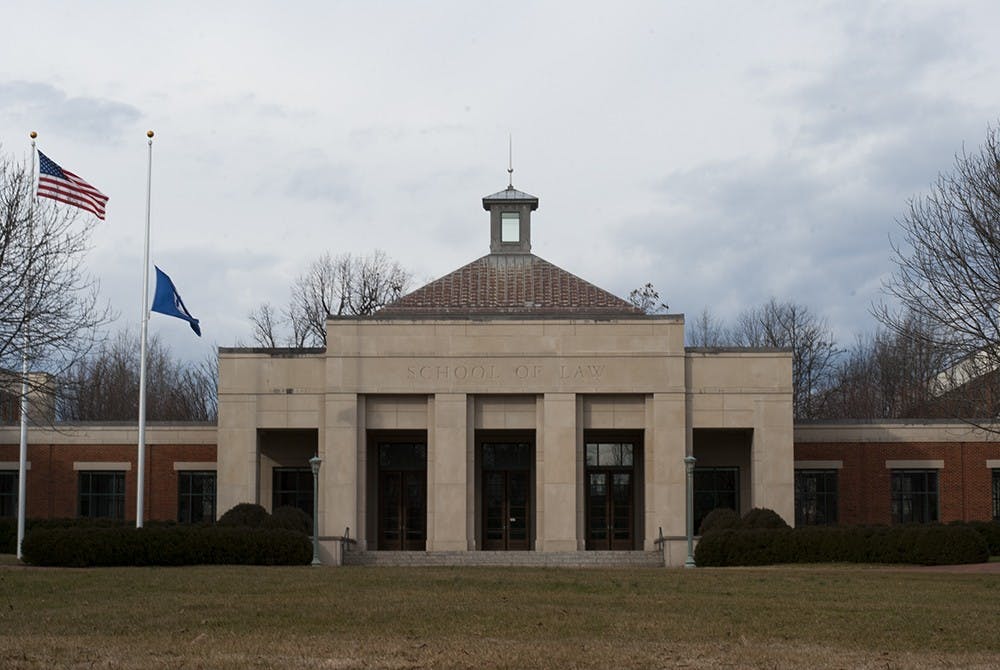The Law School held a panel Monday to discuss career opportunities in child advocacy. The panel led a conversation about their individual experiences as child advocacy lawyers and gave career advice to Law students.
Mario Salas, attorney for the JustChildren program and a Powell fellow, said he believed both his recent graduation from the Law School and current profession might offer a helpful model for current Law students.
“I’m able to kind of tell people who are there what may be down the road for them,” Salas said. “I got [the Powell] fellowship right after law school, so I’m there to help students understand the kinds of options that are there.”
Salas also emphasized his satisfaction with his career choice.
“My day-to-day right now is focusing on implementing a project which is primarily to represent parents and adolescents who receive special education services from public schools and who are having a variety of different kinds of issues with the public school system,” Salas said. “My prediction about how fulfilling it was going to be to work with families came true.”
Andy Block, director of the Virginia Department of Juvenile Justice, said the job of a child advocacy lawyer is to represent the best interests of the child and to help the court decipher the best way to serve kids.
“Kids in a lot of neighborhoods where we work don’t have to screw up very much, and they’re out of school, and there’s no place for them to go, and they’re on the street doing whatever they’re going to do,” Block said. “One of things that’s clear when you get into the work, [is] that when policy decisions are being made about kids, they’re usually [being] made by adults that work with kids, but there’s no one there representing the kids.”
Law professor Richard Balnave said he hoped Law students would leave with a better understanding of and stronger drive to work in the field of child advocacy.
All three panelists discussed the versatility of a lawyer’s training.
“One set of skills you will develop [as a lawyer] is how to analyze things, how to separate facts, how to line up issues, how to think down the road where things will be heading, and how to get [your client] there,” Balnave said.
Block also emphasized the necessary participation of a lawyer as well as other professionals in advocating for a child’s welfare.
“The difference between [a lawyer and a social worker] is we can make people do things,” Block said. “[Social workers] have lots of talents and skills we don’t have, and it’s important to know where the lines are, but we can compel people to act in ways that are potentially beneficial for our clients.”
Salas further discussed the nuances of a lawyer’s training.
“Being a lawyer is not always about going in and demanding things and winning,” Salas said. “[It’s about] being able to be an effective negotiator...it’s being able to understand how to get people to communicate effectively in a situation.”
In addition, the three panelists encouraged students to consider the positive nature of the current job market in the domain of child advocacy.
“The research is increasingly lining up with what advocates would want,” Block said. “In the juvenile justice system, you would want a kid to not get locked up...there is a nice convergence in what you would want in your heart of heart for kids and what makes good policy.”
Additionally, Balnave focused on the superior qualification of Law students who graduate from the University upon entering the job market.
“There are thousands of lawyers today who are not as good as you will be, who are representing kids right now,” Balnave said.
Block also noted the large University Law alumni network, which includes many lawyers who work in child advocacy.
“[The University Law School has] a pretty good core of graduates who are doing this work in different parts of the country,” Block said. “[And] everybody loves to help other people join the field. The thing about this field is that while it’s in all states, it’s not that big, and everybody is probably one or two degrees of separation from anyone you’d want to talk to.”







